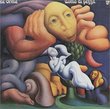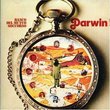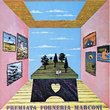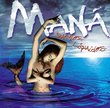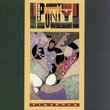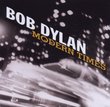| All Artists: Pfm Title: L'isola Di Niente Members Wishing: 5 Total Copies: 0 Label: Sony Bmg/RCA Release Date: 7/15/1998 Album Type: Import Genres: International Music, Rock Styles: Europe, Continental Europe, Progressive, Progressive Rock Number of Discs: 1 SwapaCD Credits: 1 UPC: 035627178221 |
Search - Pfm :: L'isola Di Niente
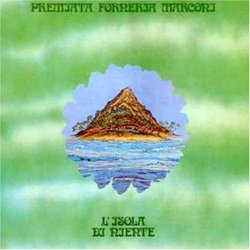 | Pfm L'isola Di Niente Genres: International Music, Rock
Import exclusive, standard jewel case edition of the Italian prog-rock act's 1974 album. RCA. |
Larger Image |
CD DetailsSynopsis
Album Description Import exclusive, standard jewel case edition of the Italian prog-rock act's 1974 album. RCA. Similar CDs
Similarly Requested CDs
|
CD ReviewsThird and last of PFM's classic studio albums kireviewer | Sunnyvale, Ca United States | 08/22/2003 (4 out of 5 stars) "As you probably already know, PFM is an Italian progressive rock band. This is their third album. It is their last studio album to feature their classic progressive sound. Their next studio album, Chocolate Kings, veered slightly from this sound, adding a new lead singer and going after a slightly more jazzy, popish sound. After that, they went true Italian pop, except for their live shows and CD's.This album is not quite as good as the first two, only in that it is not as consistently brilliant throughout. At only 36 minutes long, there shouldn't be any low spots. If the album were longer, then you could tolerate the slow spots without feeling there is something missing.The CD starts out with an Italian choir. This would be a nice addition, if it were only an addition. But, it cuts into the overall length of the album, so that you end up with only 31 minutes of quality rock music.The second song (Is My Face On Straight) is PFM's first song with English lyrics. It was co-written by Pete Sinfield (who wrote the lyrics for early King Crimson albums). It sounds more like a Pete Sinfield song than a PFM song, especially in the beginning. It reminds me of Sinfield's Under the Sky. While it is a good song, it is not up the great standards of PFM. So, once you subtract the intro to this CD and Is My Face on Straight, you end up with only 25 minutes of great PFM music. That is why I only give this 4 stars.The rest of the material is extremely good, switching between lush progressive art rock and hard metal.There is a different version of this album, called The World Became the World. It is the same music, but with English lyrics, and additional song, and a blue cover instead of green. The additional song is the title track. It is an English version of Impressioni di Settembre from PFM's first album, Storia de la Minuto. I prefer the original Italian versions of these albums, compared to the rewritten English versions. Sinfeild's lyrics are not translations of the Italian, but completely different themes. And like Yes's lyrics, they are written for how they sound and not to be meaningful. Also, PFM did not know how to speak English at the time, so the vocals have wierd sound to them. So, I would rather hear the original, melodic Italian that I don't understand, than the new stinted English that doesn't have any meaning.PFM was a completely different sounding band in the studio and live. In concert they were a hard rocking band with incredible solos. Great live albums include 10 Anni Live boxset, Live in the USA (also called Cook) and the recent Live In Japan.PFM has been in existence for over 30 years. After playing progressive music, they became a back up band for an Italian pop singer. The group went pop throughtout the eighties and most of the nineties. They made a return to their roots with a number two live albums (pfmpfm.com and LIve in Japan). They also put out a studio album (Serendipity) that some claim goes back to their classic roots. I haven't heard the whole thing, but the songs I have heard were not that good." Is their face on straight? ricciodimare | Tuckahoe, NY USA | 06/15/2006 (4 out of 5 stars) "The most "nervous" and last of the initial PFM triad, "L'isola di Niente" (Isle of Nothing) lives on terrific guitar playing (if anything, this was Patrick Djivas' and his bass guitar's first entry with the band) fused with Premoli's wise keyboard fillings and the rapid changes of Di Cioccio's majestic drums. All titles have something very intriguing to listen to, but we are obviously far from the level of the first two majestic albums. Get it if you like PFM, but this is not a must. Yet, it's far better than most available progressive rock. "Dolcissima Maria" is perhaps the best piece here, but Via Lumiere will impress for its novel sounds and pace. All in all, an isle filled with nice sounds, including the choir of Milan madrigalists, an apparently odd but welcome feature of an interesting album."
|

 Track Listings (5) - Disc #1
Track Listings (5) - Disc #1